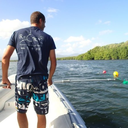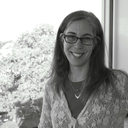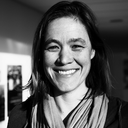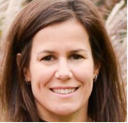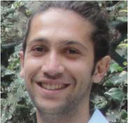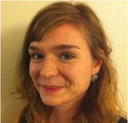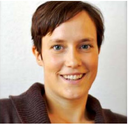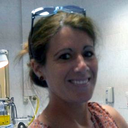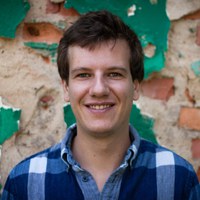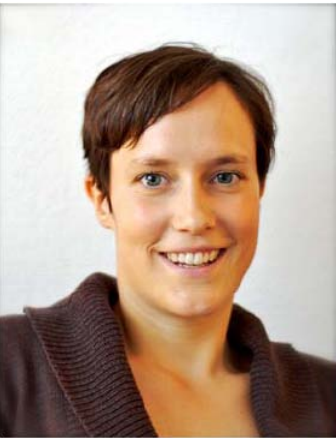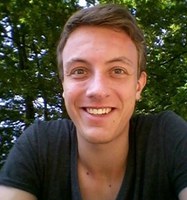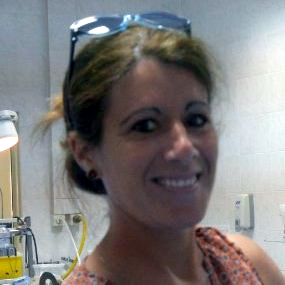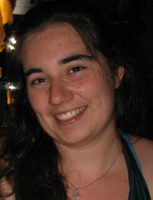Who are we?
Here is the team! Click on any picture to get someone's short bio.
Linwood Pendleton, PhD |
|
|---|---|
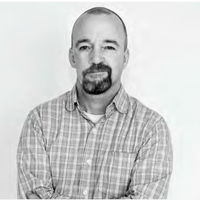 |
Linwood Pendleton holds the International Chair in Marine Ecosystem Services. He is also senior scholar in the Ocean and Coastal Policy Program at Duke University's Nicholas Institute for Environmental Policy Solutions. Pendleton’s work focuses on policies that affect human uses and enjoyment of ocean and coastal resources – both living and non-living. He is the director of the Marine Ecosystem Services Partnership, author of many scholarly articles, and coordinates the Marine Secretariat of the international Ecosystem Services Partnership. Pendleton’s current projects include understanding the economic and human impacts of ocean acidification (funded by SESYNC), Mapping Ocean Wealth (with the Nature Conservancy), the economics of Coastal Blue Carbon (Global Environmental Facility), and efforts to better manage the deep sea. Pendleton served as acting chief economist at NOAA from January 2011 through August 2013. He holds a doctoral degree in resource and environmental economics from Yale University; a master's degree in public administration from Harvard’s Kennedy School; a master's degree in ecology, evolution, and behavior from Princeton; and a bachelor's degree in biology from the College of William and Mary. Take a look at Linwood Pendleton's CV Back to top |
Maxime Sèbe, PhD student |
|
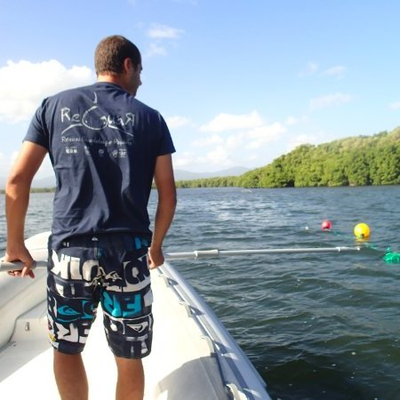 |
After working on the sharks and turtles monitoring, Maxime joined the French Agency for the Biodiversity - former French Marine Protected Areas Agency - in order to work in the marine mammal Agoa sanctuary. Specialized in MPAs' management and marine mammals, Maxime thesis aims to bring solutions to one of the biggest threat to cetacean: ship strikes. To this end, the use of a interdisciplinary approach is needed to assess the best way to conciliate the shipping companies' Blue Growth with marine mammal conservation. |
Susan O. Grose, PhD |
|
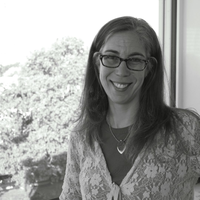 |
Dr. Susan Grose is a researcher in ISBlue (formerly the Laboratory of Excellence) at the European Institute for Marine Sciences (IUEM). She works with director Linwood Pendleton on various research questions, ranging from Mangrove Ecosystem Services to improving data flow from researchers to NGO’s and other users, to fisheries management. The common thread is “disruption”: finding new ways of thinking and doing to improve our ability to sustainably benefit from the oceans’ natural resources. Susan’s background is phylogenetic botany, where she has worked on Polynesian Myrtaceae and Neotropical Bignoniaceae. Her personal interests are in plant and animal (including humans!) relationships. |
Previous team members
|
|||||||||
|---|---|---|---|---|---|---|---|---|---|
Evangelia Drakou, PhD |
|||||||||
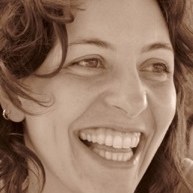 |
Dr Evangelia Drakou worked for the International Chair from October 2014 until March 2017. Now she works as an Assistant Professor at the University of Twente. She is an interdisciplinary researcher with doctoral studies in Landscape Ecology and protected area management. Her expertise is on mapping and assessment, modelling and visualization of information on marine and coastal ecosystem services. Within the International Chair team, Evangelia was coordinating the research activities of the Horizon 2020 project ECOPOTENTIAL on the use of earth observation data to assess and monitor the status of protected areas in Europe. She also led the development of the Ecosystem Services Partnership Visualization Tool (esp-mapping.net). She was previously post-doctoral researcher at the JRC-EC on the BIOPAMA project to assess and map ecosystem services provided by protected areas in the Africa, Caribbean and South Pacific (ACP) regions. Before that she worked as a post-doctoral researcher at the FP7 Research Project SCALES. She is actively involved in the Marine Ecosystem Service Partnership and she is an active member of several working groups of the Ecosystem Services Partnership and the GEOBON working group on Ecosystem Services. |
||||||||
|
|||||||||
Amber Himes-Cornell, PhD |
|||||||||
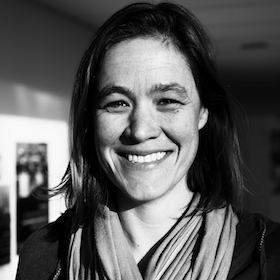 |
Dr. Amber Himes-Cornell worked for the International Chair from January 2016 until October 2017. Now she works as a Fishery Officer at the Fisheries and Aquaculture Department, Policy, Economics and Institutions Branch (FIAP) of the FAO (Food and Agriculture Organization of the United Nations). She worked as a social science researcher in the Laboratory of Excellence at the European Institute for Marine Studies (IUEM). Her research focus is on coastal community vulnerability and resilience, the socio-economic aspects of marine ecosystem services, valuation of ecosystem services associated with blue carbon habitats (including mangroves), and assessing ecosystem services in marine protected areas. Amber's primary focus was on two major research projects: The Global Environment Facility's Blue Forests Project, which focuses on defining and valuing ecosystem services in blue carbon habitats, and a European Union funded Horizon 2020 project called ECOpotential, which focuses on mapping coastal ecosystem services with remote sensing technology. Prior to coming to IUEM, Amber was a social scientist at NOAA’s Alaska Fisheries Science Center where she focused on analyzing the importance of commercial, recreational and subsistence fishing to Alaskan communities. |
||||||||
|
|||||||||
Anne Kaup |
|||||||||
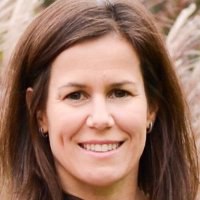 |
J.D. Anne Kaup worked for the Interntional Chair from May 2014 until February 2017. As executive manager of Marine Ecosystem Services Partnership (MESP), Anne worked with director Linwood Pendleton to foster a community of scientists, stakeholders and policy-makers, making available to them information regarding the latest trends and issues related to marine ecosystem services. She researched, edited and produced Pendleton’s blogs, podcasts, website material, webinars and newsletters. Anne also managed the MESP database containing over 1,000 ecosystem service valuations. She is an attorney and has a law degree from Cornell University (1998) and a B.A. in Economics from Yale University where she completed a 2nd major in Studies in the Environment (1995). |
||||||||
Perrine Laroche |
|||||||||
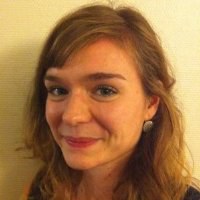 |
Perrine Laroche was an intern at the International Chair from March 2016 until September 2016. Now she’s a PhD student at the Vrije Universiteit Amsterdam since April 2018 working on the topic of “Impacts of changing lifestyles and ecosystem service demands”. Perrine was, in 2016, a MSc student in Applied Economics to Agriculture, Sea and Environment (Agrocampus Ouest - University of West Brittany, France) with an academic background in Geography and Spatial planning (University of Lyon 3, France). She joined the team in March 2016 for her Master’s thesis based on a review and analysis of the concept of “Essential Variables”, developed by the United Nations, and its application for the assessment and monitoring of Ecosystem Services. She was investigating the use of science and remote sensing techniques to deliver relevant knowledge to help policy makers to prioritize conservation actions in areas of interest in order to achieve Global Targets (CBDs, Aichi Targets,...). During this training she developed skills in systematic literature review methods, statistical analysis and mapping. |
||||||||
|
|||||||||
Antoine Rivière |
|||||||||
 |
Antoine Rivière worked for the Chair from March 2016 until July 2017. Now he works as an Economy and International relations teacher at the Institut Supérieur de l'Electronique et du Numérique (ISEN). Antoine joined the team at the beginning of 2016 as a Program Manager. He developed a strong interest in the Science-Policy interface of global environmental changes, with a particular focus on climate change. Within the International Chair, he was more specifically involved in the Blue Carbon Science of the GEF Blue Forests project. Before joining the team, Antoine worked for the French Ministry of the Environment as a foresight officer and in a startup in Carbon markets. Antoine academic background is interdisciplinary since he graduated in a double Master's in Environmental Sciences and Environmental Policies (Sciences Po & UPMC, France). He also holds a masters in Ecological Economics (AgroParisTech, France). |
||||||||


